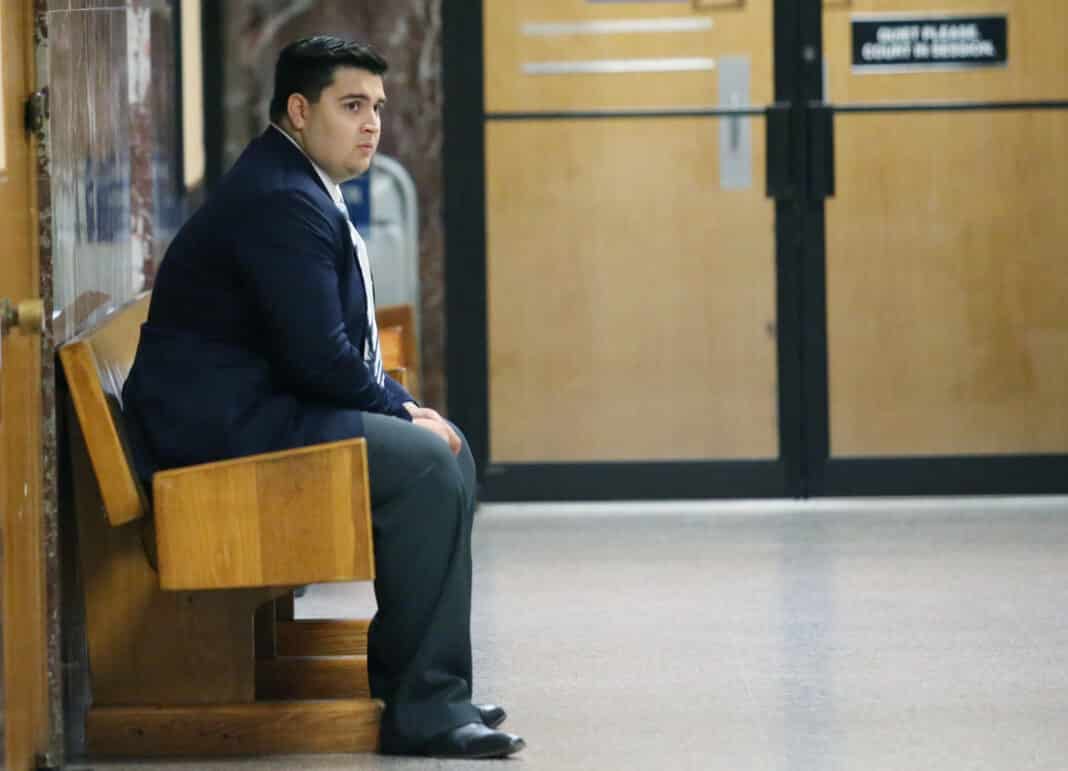After months of delays, attorneys representing the state filed a response last week with the 13th Court Appeals, arguing against a request for a new trial filed by Jose Luis Garcia Jr., a Rio Grande City man who was acquitted in the murder of a Rio Grande City teen but convicted of tampering with evidence in 2019.
Attorneys from the 229th District Attorney’s Office in Starr County filed a brief with the appellate court Sept. 1, countering the assertions made by Garcia’s attorneys that the judge presiding over the trial should not have allowed Garcia’s confession to be entered into evidence.
Garcia was charged with the 2017 murder of Chayse Olivarez, a 17-year-old Rio Grande City teen who was initially reported missing in July 2017. The next month, Olivarez’s dismembered remains were discovered in a Roma ranch.
Along with the murder charge, Garcia was charged with a count of tampering with physical evidence of a human corpse and a count of tampering with physical evidence.
Before the start of the trial, Garcia’s attorneys filed a motion to suppress the statement he made to officers when they detained him in August 2017, but visiting state District Judge Rogelio Valdez ruled to allow the confession into evidence.
Still, Valdez told jurors that if they found that the traffic stop lacked probable cause, to not consider any evidence obtained from that traffic stop during deliberations, which would include the confession.
A jury acquitted him of murder and tampering with a corpse, but convicted him of tampering with physical evidence, sentencing him to eight years in prison.
Garcia’s attorneys appealed the conviction, arguing in a brief filed in February that his statement to law enforcement confessing to the murder should not have been allowed into evidence during the trial.
They alleged that law enforcement coerced Garcia into giving the statement after conducting an “illegal arrest.”
The day he was arrested, Garcia was approached by law enforcement after football practice. Law enforcement who knew he would be there, were on the lookout for him and were instructed to bring him in if he was located.
They did not have an arrest warrant for him, but an officer saw Garcia speeding so he stopped him and issued Garcia a warning. Still, Garcia was detained for questioning. Officers handcuffed him and transported to the Starr County sheriff’s office.
Attorneys for the state argued that despite the arguments by Garcia’s attorneys, the officers’ detainment of Garcia was reasonable and that he was not under arrest when he gave the statement.
They said Garcia voluntarily agreed to accompany law enforcement to the sheriff’s office to answer questions about Olivarez’s disappearance. They add the use of handcuffs was for his and the officers’ safety, as per Rio Grande City Police Department policy.
At the sheriff’s department, Texas Ranger Eric Lopez read Garcia his Miranda Rights. Garcia said he understood and waived them, the state attorneys said in the brief.
“Approximately an hour and a half after waiving his Miranda rights, (Garcia) asked Lopez, ‘I can’t get a lawyer or something to help me out here?,’” the state wrote. “Lopez testified that he was unsure if (Garcia) was asking for a lawyer so he asked for clarification but (Garcia) kept cooperating, so the interview continued.”
The question about a lawyer, the state argued, was not an “unequivocal request for counsel” as required by law.
Because Garcia voluntarily went with the officers and cooperated with them under questioning, the state argued that there was no illegal arrest.
“The fact that (Garcia) asked the officers ‘what do they want to talk to me about?,’ coupled with (Garcia) agreeing to go, and (Garcia) knowing he was a person of interest, and no one telling (Garcia) that he was under arrest, (Garcia) being handcuffed for transport only (Garcia) never giving law enforcement the impression that he was under arrest, are all factors showing that the detention was reasonable under the circumstances and that it was not an unlawful arrest under the 4th Amendment or Texas law,” the state argued.





